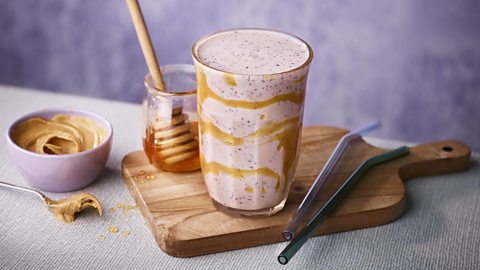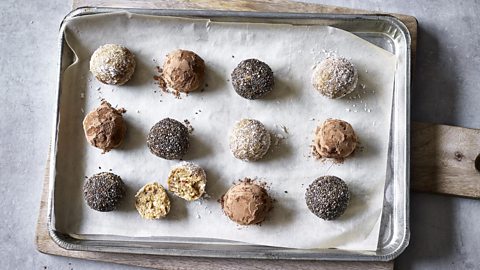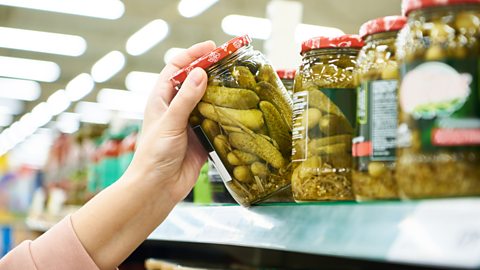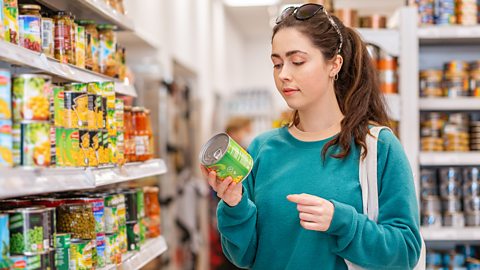Could understanding digestion make you healthier?
We look into how long it takes our bodies to process food, and ask the experts whether we need to be rethinking mealtimes
By Lauren Potts

We’ve all heard the advice about not eating a big meal before bed and choosing a breakfast that keeps us fuller for longer. But what does the science say, and can rethinking when we eat certain foods or meals really have that much of an impact on our bodies?
How long does it take to digest food?
Because studies tend to look at the digestion times of food combinations rather than one macronutrient on its own, there’s no easy answer to this question, says consultant gut health dietitian Kirsten Jackson.
Even if there were lots of reliable studies on how long it takes to digest, say, chicken, there’s a limit to how practical that information would be, as we don’t really eat these foods by themselves.
Plus, digestion rates (also called gut transit times) vary from person to person. This can be for a number of reasons including our microbiota – the trillions of bacteria, fungi, viruses and parasites that live in our gut – the amount of fibre we’ve eaten, our metabolism and our age.
But, thanks to a study published in 2021 involving blue poo, we have a general rule of thumb for how long the digestion process takes, and that’s 14-58 hours.
Science does tell us that fats and protein take longer to break down than carbohydrates, says Jackson, who is also known as The IBS Dietitian.
“Fat probably takes the longest to digest and that’s simply because a lot of digestive processes, which involve enzymes and acid, are done in water. Fat is not soluble in water, so it sits there for longer,” she explains.
Jackson adds this might be one of the reasons we get heartburn after eating fatty foods and why a low-fat diet is often recommended for those with acid reflux.
The digestion time of protein is harder to estimate, says Jackson, since it depends on the source and fat content – given that fat slows the process down. For instance, eggs contain 11g of fat per 100g, while plant-derived tofu has 5g of fat per 100g.
The digestion time of carbohydrates, such as bread and rice, varies for a different reason. It’s all to do with the length of its chain (the linked sugar molecules that make up its structure).
“If you look at white table sugar, which would be in a cake or a biscuit, that’s [a short chain] so as soon as it goes into the small bowel it just absorbs it and gets digested very quickly,” she says.
“But with something like white bread, where sugar chains are linked together, your body has to ‘cut’ the chains down to then be able to absorb it. So that’s going to slow the digestive process down.”
What that means for our meals
“Most of us will have three meals a day, so we want digestion to be slow and controlled in our body,” she explains. “The benefit is you’ll feel fuller for longer and your energy levels are more sustained throughout the day.”
That in mind, Jackson recommends adding complex carbohydrates like wholegrains – which have longer sugar chains and more fibre – to every meal. For example, at breakfast opt for wholegrain toast or improve a smoothie by adding protein and three tablespoons of oats, which take longer to break down.
Protein shake
This smoothie includes silken tofu and peanut butter

“Lots of smoothies and juices are very high in sugar – a glass of orange juice has more sugar than a can of Coke. It gets broken up so quickly that the energy just disappears.”
When snack time hits, swap high-sugar biscuits for those made from oats – even if they also contain chocolate, Jackson says.
“The added fibre will slow down the digestion of these biscuits in comparison to those made from refined flours which are broken down quite quickly.”
Mary Berry’s ginger oat crunch biscuits are quick to make
What to eat in specific situations
It might help to be aware of our digestive system to get the best outcome in different scenarios. For instance, there could be times when it’s best to eat foods that are slower to digest, and times when you want something your body can process faster.
What to eat before a run
One of the only times you might want to digest something quickly is during high-endurance sports.
“Triathletes will often have sachets which have got electrolytes in them and sugar in some format, because they need that boost of energy very quickly.
“They don’t want to be eating bread and breaking it down then getting [a boost] half an hour later,” Jackson explains.
Energy balls
These will give you a burst of energy

What to eat when you have diarrhoea
Jackson doesn’t recommend the oft-lauded BRAT diet – bananas, rice, applesauce and toast – despite what she calls the “cultural myth” around it.
“[Except rice], they’ve all got FODMAPs in them, which are fermentable carbohydrates. They go into the large bowel and the microbes start to eat them and they give off gas and draw water.
“This is a very natural, normal process, but if you’ve got a gastrointestinal infection, you’ve already drawn lots of water into your gut. If you have diarrhoea and are producing loads of gas, the last thing you want is anything that’s going to aggravate that further.”
Jackson says bananas, applesauce and toast are all high in harder-to-digest fructans, though rice is “easy enough” on the gut.
She instead recommends staying hydrated with electrolytes and perhaps introducing plain protein and very well-cooked vegetables once the worst has passed.
What to eat in the evening
Brown rice or a wholegrain pizza base are good options as part of an evening meal, says Jackson, as they’ll help sustain us through the night – our longest period of fasting.
“We might want to avoid high-fat foods before bed since they are slow to digest and might cause heartburn. But dietitians are not saying to totally cut out any particular foods – it could just be about portion size or moderation,” says Jackson.
“So, it could well be that you have a takeaway curry – but you share it and you have some wholegrain rice with it and get a vegetable side as well, so it’s a bit more balanced.”
Find what works for you
Ultimately, arranging your diet around digestion time is not something Jackson recommends unless you’re a high-performance athlete. Instead, it’s simply something to bear in mind.
“We don’t need to be thinking about the nitty gritty of all these tiny details, which can actually cause disordered eating,” she cautions.
“If you’re having a massive energy slump in the afternoon, you might want to look at your diet to make sure you’ve got those wholegrains. Otherwise, I don’t think we need to be staring at it – just consider it.”
And remember, everyone’s guts are different.
“There are so many different factors [affecting digestion] – portion size, the timing, how fast or slow someone’s gut is,” Jackson says.
“I think that including some healthy fat, a good amount of fibre and source of protein in each meal is all that 99% of people will need to do.”
Originally published April 2025
Want more? Visit BBC Food on Instagram, Facebook and Pinterest or watch the latest Food TV programmes on BBC iPlayer.



